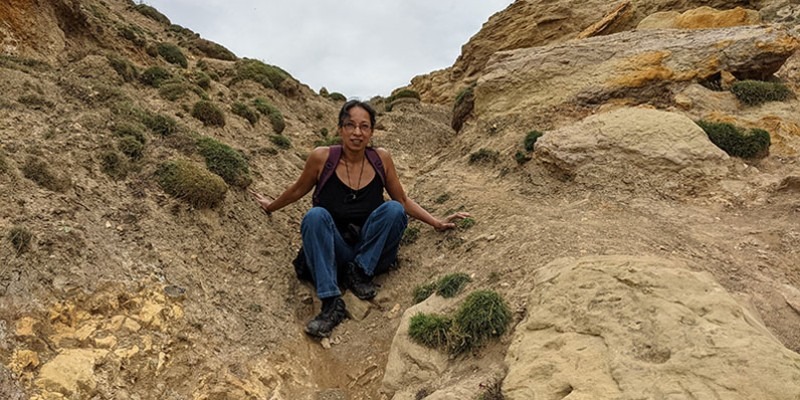
Tell us about your role?
I am a physicist-turned-data-scientist working in the intersection between environmental social & governance-related regulation and social justice. I and my team do this via two platforms: TISCreport.org, a Transparency-In-Supply-Chains platform, and projectvana.org, an afforestation-with-data platform.
What do you enjoy most about your job?
I consider myself incredibly lucky. I get to spend my days (and often dreams) analysing the systems that make our planet work (from communities and cities through to corporations and governments), identifying their interconnectedness and most importantly, where they are disconnected. I’m a norm entrepreneur, seeking to influence corporate behaviour to fix those disconnects.
And what are the most challenging aspects?
The most challenging aspect of what is now my life’s mission is that simply “doing the right thing” is not simple at all for most who work in big organisations. They not only need a business case for acting ethically, but they also need to deal with complex truths as part of even more complex systems. As we’ve learned the hard way in recent years, the media and the public are much more binary in how they judge the actions of corporations. Our work with data needs to go hand in hand with our work with the human beings using it.
Have you experienced any bias during your career? If so, how did you deal with it?
Yes, perhaps a little bit. Mostly from men who felt threatened by my knowledge and expertise. As the female director of a technology company back then, I realised that in order to do business you needed to send in the least threatening representative to build the relationship. So my husband and I would tag-team on who needed to own that relationship. As our business grew, we were able to afford to walk away from clients who had issues working with me.
What does success mean to you?
To me, it is being able to make a comfortable living making the world a better, safer, fairer place for all. I don’t need to be Elon Musk or Jeff Bezos. I do need to play my part in making business a non-zero-sum game.
How can we enable more women to take a place at the board-room table?
I can only speak from my personal experience of being a parent of two young children, a part-time carer for my elderly parents and the co-director of a tiny social enterprise.
There are a number of things that have made it possible for me to contribute to the board-room tables I have joined. The first has been flexibility in terms of time (within school hours!!). The increase in acceptability to attend via video call has also meant I’ve been able to do so much more because I no longer have to worry about having to leave in time for the school run, whilst still being able to use the time not spent travelling on the day job.
Also, I love chairs who are able to appreciate that if board meetings go on for longer than two hours at a time there’s either too much in the agenda or more chairing required! It certainly has influenced the way I chair meetings. It’s not about the hours you put in. It’s the quality of the thinking that needs to be valued.
And… remuneration has helped enormously. There will be some women in large organisations who are better off since gender pay gap reporting, but many are not. Those working in tiny organisations will be hit even harder because not only are they paying themselves very little (as most small business owners do), they will be in loss for every voluntary board position they take on. I have a number of boards I give my time freely on because they would not be viable otherwise. But I could not make those commitments work without my remunerated board positions. There is a very real financial and mental load for every board commitment, for both men and for women. If companies can address these then there will be far fewer elephants around that board room table and many more women, and people from other under-represented groups!!
What women inspire you and why?
Ah well, it would have to start with my mother, who, upon graduating as a doctor in India, decided to jump on a ship all on her own to start a life here in the UK. During her career as an NHS doctor, she faced relentless racial and sexual harassment, all while saving many, many lives and raising my brother and I with my father. Ma got at least some of her awesomeness from her mother, my Dida. Dida was a seriously badass geography teacher who got her whole family, including three young daughters, out of what is now Bangladesh to safety across the dense jungle border during the partition violence. It was an unthinkable time when many families felt forced to kill their daughters for fear of what separatists would do to them if they were caught. Her bravery brought me to where I am today. I consider it my duty to pay it forward.
- Log in to post comments
